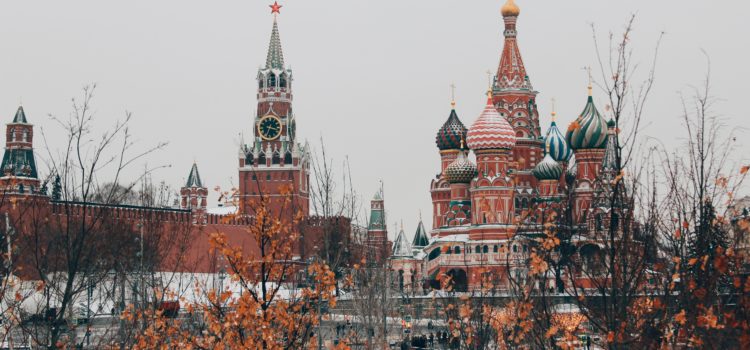

This article is an excerpt from the Shortform book guide to "Battlegrounds" by H. R. McMaster. Shortform has the world's best summaries and analyses of books you should be reading.
Like this article? Sign up for a free trial here.
What motivates Vladimir Putin? What’s he after? What’s his strategy?
In Battlegrounds, General H. R. McMaster explains Vladimir Putin’s emotional motivations. He also describes the methods by which Russia is reasserting itself as a world power.
Read more for this enlightening and timely discussion of Russian aggression in Europe.
Russian Aggression in Europe
After the Cold War, the U.S. expected that the new Russia would become one of its allies in the democratic world. However, under Russian President Vladimir Putin, Russia’s leadership fights to return to the glory days of the Soviet Union, with its new authoritarian regime fueled by wealthy oligarchs instead of Communists.
Russian aggression in Europe is a show of strength from Putin. Behind it lies a deep, lingering sense of humiliation from the collapse of the former Soviet Union. In the aftermath, Russia’s attempt to develop a free market economy didn’t go as planned and instead resulted in a kleptocracy where corrupt politicians and businessmen lined their pockets at the country’s expense. Putin and many of his cohort view the Soviet Union’s fall as a disaster, aid from the U.S. as an insult, and the changes that were made to bring Russia’s economy in line with other capitalist nations as the reasons for the economy’s collapse.
(Shortform note: Russia’s path to democracy and capitalism was undermined from the start by the last vestiges of the Soviet regime. In the Cold War, the KGB had learned to funnel money through back-alley channels to its agents in the West, and when the USSR came apart, they used those same tactics to empty vast sums from the Soviet treasury into private bank accounts abroad. These funds fueled a growing class of wealthy Russian oligarchs—businessmen with strong political ties—and have led many to characterize modern Russia as a kleptocracy in which political decisions primarily serve to enrich the powerful at the expense of the state.)
Driven by these factors, Putin’s goal is nothing less than to return Russia to the height of Soviet power. However, Russia can’t compete economically with either the U.S. or China. So, instead of building Russia up, Putin’s strategy is to tear other countries down. For example, Russia has become adept in the field of cyber warfare, which it’s used to interfere with elections in the U.S., Britain, and other democratic countries. McMaster says the goal of these attacks isn’t to favor one particular outcome but to undermine trust in the democratic process itself through an onslaught of misinformation. However, Russia’s aggression and bluster toward the West is a mask to hide significant economic weaknesses at home.
(Shortform note: Russia isn’t the sole source of online disinformation campaigns. Many countries make use of state-sponsored “troll farms” to inundate social media with divisive and inflammatory content. In the lead-up to the 2020 U.S. presidential election, the National Counterintelligence and Security Center claimed that Russia, China, and Iran were all using online tactics to undermine the election. In 2022, Russian oligarch Yevgeny Prigozhin openly admitted to interfering with U.S. elections and stated that he would continue to do so.)
| The War Against Ukraine In the updated 2021 edition of Battlegrounds, McMaster mentions Russia’s armed buildup near Ukraine, which he describes as a show of force aimed at intimidating the West. However, in February 2022, that buildup turned into a full-scale military invasion, resulting in the largest armed confrontation in Europe since the end of World War II. Putin claims the invasion was necessary to protect Ukraine’s ethnic-Russian minority, as well as to prevent the possibility of Ukraine joining NATO (the North Atlantic Treaty Organization). After Russian forces failed to achieve a fast, overwhelming victory akin to the U.S.’s invasion of Iraq, Putin was faced with a protracted conflict that has cost in excess of $80 billion, done $600 billion in damage to Ukraine’s economy, and caused the deaths of over 200,000 soldiers on both sides, as well as over 7,000 civilians. As of early 2023, the outcome of the war is still very much in doubt. |

———End of Preview———
Like what you just read? Read the rest of the world's best book summary and analysis of H. R. McMaster's "Battlegrounds" at Shortform.
Here's what you'll find in our full Battlegrounds summary:
- Why the U.S. has lost influence on the global stage
- The bad assumptions that cloud U.S. foreign policy
- Strategies the U.S. should adopt in order to help defend the free world






